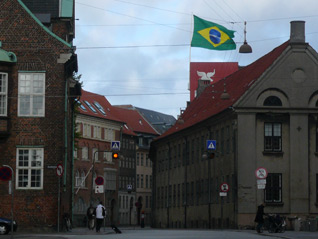Interested parties from Sapporo, Salt Lake City and British Columbia will need to wait several more months or years before learning whether they’ll be hosting the 2030 Olympic and Paralympic Games – and they may be in the running for the 2034 edition at the same time. Other new bids could also join the race. This unprecedented Olympic bid reset comes after months of meetings, visits and promises that the winner would be named next year.

The International Olympic Committee’s (IOC) Executive Board announced Tuesday that it has dropped plans for a 2030 host city election during the 140th all-members Session tentatively scheduled for September or October in Mumbai, India next year. IOC Executive Director Christophe Dubi said the Future Host Commission needs more time to “dig deep” and investigate concerns that have emerged around hosting winter sports – specifically related to climate change. The next scheduled Session will take place in France, immediately in advance of the Paris 2024 Summer Games twenty months from now.
Earlier this year IOC president Thomas Bach said he intended to elevate one or more cities to “targeted dialogue” during Tuesday’s quarterly meeting, and elect a host at the 2023 Session originally planned for May but later pushed to September or October. Now officials will not commit to a new election timetable, and they don’t need to according to changes to the Olympic Charter introduced in 2019 that made the entire process flexible.
Instead the Future Host Commission will investigate how climate change is impacting winter sports and future host elections. Referring to academic studies and the commission report, Dubi said climate change is reducing the number of “climate-reliable hosts” creating uncertainty.
The Commission discussed several proposals including “rotating the Olympic Winter Games within a pool of hosts” and to ask prospective hosts “to show average minimum temperatures of below zero degrees (celsius) for snow competition venues at the time of the Games over a 10-year period.”
The IOC will also aim to target hosts where all venues are existing or temporary.
Unofficially, the delay will buy time to help all parties work through several other issues that are currently making the Winter Games host choice complicated. In October the promising Vancouver-centered bid from British Columbia in Canada took a step back when necessary support was denied by the provincial government. Sapporo remains the front runner for 2030 despite a Tokyo 2020 corruption scandal that is casting a dark shadow on the bid from the Hokkaido capital.
The United States Olympic and Paralympic Committee (USOPC) said it will step in with Salt Lake City for 2030 if necessary, but prefers to host in 2034 to build a gap following the Los Angeles 2028 Summer Games.
The extra time might help Sapporo and Vancouver solve their issues, or it could open the door for an entirely new project. The three interested parties are already deep in discussions and have welcomed IOC technical inspectors for site visits and last month they joined the Future Host Commission for official briefings.
But when asked, IOC’s Head of bid city relations Jacqueline Barrett told GamesBids.com “we’re still in continuous dialogue, our door is never closed. If someone wants to come to the table and discuss a new interest – of course. That’s our mandate. We’re in the business of promoting sport.”
President Bach had effectively ruled out a possible dual allocation involving the 2030 and 2034 Games last July when he said such a decision, even for technical reasons, wouldn’t be good governance. He preferred to leave the 2034 election to his successor after he leaves office in 2025.
Dubi explained the Executive Board discussions about the dual award and a possible pivot saying “there were declarations made (by Bach) regarding the next leadership of the IOC but at the same time… the notion of stability is central as well for The Movement with sports in general.”
“It was a very preliminary discussion. The idea was floated, so much more to come in this respect.”
The dual award could lock in climate-capable Salt Lake City to its preferred year, providing the IOC with the stability it wants. The delay will help the IOC find the right fit for 2030 without forcing the U.S. to step in earlier which would leave the 2034 host uncertain.
Dubi remained unconcerned that pushing the election past 2023 would give the elected host less than the typical seven years to prepare for the Games. He said “if you take the context we are in right now and those proposals we have on the table, they have hosted Games in the past and they have the venues, they have the expertise as well hosting competitions not day-in, day-out but winter-in, winter-out.”
“So no concern whatsoever, and we feel very comfortable with that actually.”
Italy’s Milan-Cortina will host the next Winter Games in 2026. That we can be sure of.





